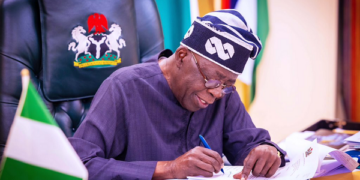- Manufacturers in Nigeria expressed pessimism in August 2024, with negative indices in the manufacturing sector contrasting optimism in mining and agriculture
- Challenges such as insecurity, high interest rates, and multiple taxation erode manufacturers’ confidence, despite cautious optimism for improved conditions in September
According to the latest Business Expectations Survey (BES) by the Central Bank of Nigeria (CBN), Nigerian manufacturers expressed a lack of confidence in the country’s economy in August 2024.
The survey, which involved 1,600 businesses, revealed a notable pessimism within the manufacturing sector, in contrast to the optimism seen in other sectors. The manufacturing and construction sectors recorded negative indices of -5.5 and -10.0 points, signaling significant concern. However, sectors like mining, quarrying, and electricity were more optimistic, with an index of 30.4 points.
While the agricultural and services sectors expressed optimism for the current month, the industrial sector remained pessimistic. For the following month, the agricultural and services sectors are expected to continue their positive outlook, with optimism indices of 5.2 and 1.2 points, respectively. The industrial sector, however, had a slightly less pessimistic forecast of -3.9 points.
The report highlighted several challenges faced by manufacturers, including insecurity, high interest rates, and multiple taxation. These issues and an unfavourable economic climate and poor power supply have made it difficult for manufacturers to operate at full capacity, eroding confidence in business conditions.
Despite this pessimism, manufacturers expressed cautious optimism for September, with a projected confidence index of 7.7 points, suggesting a potential improvement as businesses adjust to the challenging environment.
The Director-General of the Manufacturers Association of Nigeria (MAN), Mr. Segun Ajayi-Kadir, criticized the high rates of taxes imposed by various government levels and agencies. He noted that the sector is grappling with macroeconomic difficulties, particularly foreign exchange volatility and rising electricity tariffs.










Discussion about this post